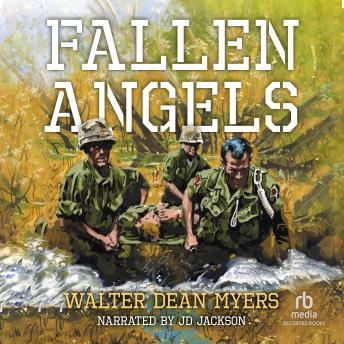
War-story fans will find enough action here, though it isn't glorified thoughtful readers will be haunted by this tribute to a ravaged generation.ĭarius Kellner suffers from depression, bullying by high school jocks, and a father who seems to always be disappointed in him. Myers masterfully re-creates the combat zone with its "hours of boredom, seconds of terror," its crushing tension and the distortion of values brought on by the relentless proximity of death-Ritchie says, "We were in the middle of it, and it was deeply within us." He survives racist officers, pitched battles, guerrilla raids, and multiple wounds, not all of them physical whether his numbed spirit will eventually thaw is a question the author leaves open. By mistake, he's ordered to Southeast Asia and into a bloody, violent nightmare where he sees his fellows gunned down (sometimes by their own side), women and children mutilated and killed, desperate heroism and equally desperate cowardice his articulate, dispassionate telling only accentuates his story's horror. With dreams of college fading, Ritchie Perry (17) enlists, buying time to consider his future. Ages 13-up.The powerful story of an introspective Harlem youth who is sent to fight in Vietnam.

A worthy memorial for brother Thomas Wayne ""Sonny"" Myers, KIA May 7, 1968, the Nam.

Readers, including those born after the fall of Saigon, will hear the morbid music of those wordsChu Lai, Khe Sanh, Phuoc Ha, medevac, hot LZ, Tetand in Perry and his buddies (especially Peewee, one of this year's great creations) they will reel from the human consequences of battle. Other authors have gotten the details right, but Myers (Crystal, Motown & Didi) reaches into the minds of the soldiers and readers are startled to remember that these were teenagers, thrown into hideous battle against other teenagers (and their families), surrounded by an enemy that was all-pervasive and invisible. What matters? Surviving 365 days and love for his comradesloudmouthed and funny Peewee Gates, Johnson the brawny, deadly machine gunner, white buddies Monaco and Lobel, and Lieutenant Carroll (who, like many real-life officers in Vietnam, cares more about his men than promotions).

The plot is simply a soldier's life from the day he arrives ""in country"" to the day he is flown back to ""the World."" Vietnam is, for one bright black teenager named Richard Perry, days of numbing tedium, racial tension, Army SNAFUs, and rumors of peace punctuated by moments of near hallucinatory terror, violence, agony and loss. Myers accomplishes his heartbreaking intent by pacing the book to mirror the grunt's life. Like A Rumor of War, Brothers, and the film Platoon, this tells the story of Vietnam from the foot soldier's point of view.


 0 kommentar(er)
0 kommentar(er)
